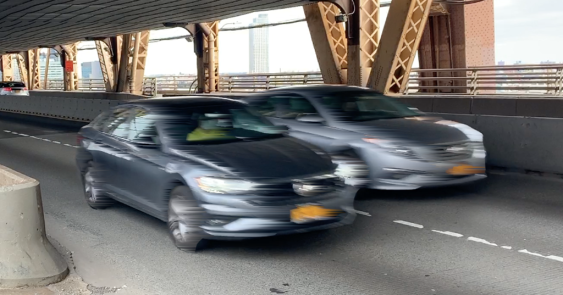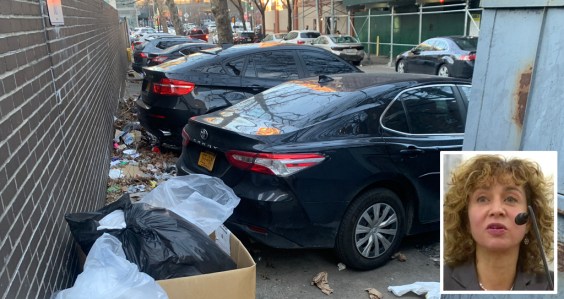Some actual news came out of this morning's congestion pricing forum with London Deputy Mayor Nicky Gavron, the one event that Streetsblog's reporting team decided to skip this week. Queens City Council Member John Liu publicly stated that he supports congestion pricing. New York Times reporter Sewell Chan reports for the EmpireZone blog:
Mr. Liu, the chairman of the City Council's Transportation Committee, said, "I generally support the idea of congestion pricing and that is - it is because of the economic as well as the environmental costs of not doing so." He said he has been persuaded by the partnership's study showing that traffic congestion costs the city $13 billion a year in economic activity.
The councilman said that some mom-and-pop shops and small businesses might actually support congestion pricing - if the benefits were adequately explained to them. "Time is money for these small businesses," he said. "They could actually make more money if the streets were less congested; but they are so skeptical at this point that they're not open-minded to hearing a lot of things. And we have to admit hey have largely been left out of the process and the entire conversation."
Queens Council Member Eric Gioia added:
"Knee-jerk opposition" to congestion pricing is counterproductive, but added, "This discussion has got to be about cleaning our air, strengthening our economy and improving our quality of life. Congestion pricing itself is not the goal; congestion pricing is a tool to get us to those other things."
Raising the issue way above the parochial complaining that has characterized New York City's transportation policy discussion for so long, Gavron said:
We both [New York and London] know that our infrastructure and the accumulated wealth of centuries are at risk with a sea level rise of just a few meters. We are experiencing currently the effects of greenhouse gases from the 50s, when we consumed as much oil in a year as we now consume in 6 weeks. And we have to feel the effects of four and a half decades. There's a time lag and currently we're chucking, pushing carbon dioxide into the atmosphere as if there were literally no tomorrow. So we have about, people say, 10 years maximum, maximum 10 years, to actually prevent runaway climate change. That's on top of everything we have yet to experience.




